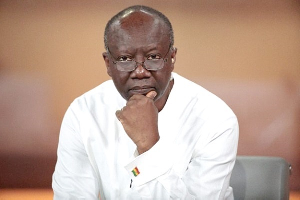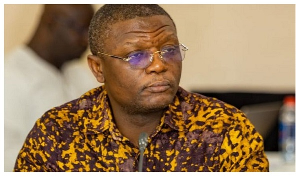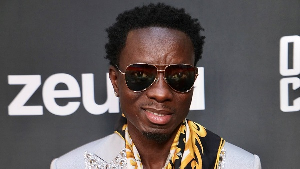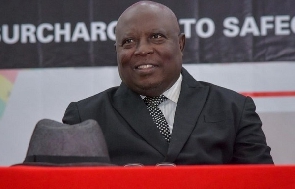Ekow Nelson, December 2012
“Perhance he for whom this bell tolls may be so ill as that he knows not it tolls for him.” – John Donne, 1624.
The recent 2012 elections in Ghana finally exposed the minority parties as a politically insignificant fragmented rump, with no chance of forming a government anytime soon. While the NPP and NDC retained their electoral dominance, their hegemony is in the long run detrimental to our democracy: it limits choice to parties with no discernible policy differences and denies much of the electorate a real alternative.
In an expanded constituency map, the CPP lost its only seat in parliament, the PNC held onto one seat and the PPP and GCPP both failed to win a single seat. In the Presidential elections, the CPP, the minority party with the loudest voice but the smallest share of the national vote– polling less than one vote per polling station - was even bested by Dr. Nduom’s PPP and Dr. Dan Lartey’s GCPP. Alas, Prof Akosa’s prediction that Dr. Nduom’s exit would open the floodgates for more people would join the party turned out to be a forlorn, perhaps even false, hope.
It must now be self-evident, even for die-hards, that the CPP is past its sell-by-date. The excuses have run out: first it was “if only the party name was unbanned”; they got their wish with the unbanning of the CPP prior to the 2000 elections but their candidate, Professor Hagan, limped miles behind the NPP’s John Kufuor and the NDC’s Professor Atta Mills. Then it was, the people voted tactically with the NPP in 2000 to ensure we got rid of the NDC. Now that Rawlings is out of power, we would return to the old CPP-UP hegemony, come 2004. This too, was blown apart when the NPP was returned to office but a steely and sturdy NDC under the late Professor Mills hung on to 47 percent of the vote. As Professor H Kwasi Prempeh observed presciently at the time, the 2004 elections proved “the NDC was as alive as the CPP was dead”.
The 2004 election signalled a tectonic shift in the Ghanaian political landscape but the CPP did not notice and hoped for the next miracle: the return of Nkrumah to lead the charge back to Osu Castle. It got the closest it could to a resurrection when the founder’s daughter Hon Samia Nkrumah returned home and evicted Lee Ocran from Jomoro. She was made party leader but four years after her election, the CPP has no seat in parliament and its Presidential candidate polled only over 2,000 more votes nationally, than the party leader’s tally in the single constituency of Jomoro.
In contrast, the present incarnation of the CPP’s historic arch rival, the NPP, does not hark back to the use of its founding names; neither does it fetishize its original party symbol. The core beliefs of the NPP have not changed and we all know who they are even if they are not called UP or NLM. That is a testament to the enduring values and beliefs of the party even if one disagrees with them. The NPP held on to what mattered most, because they knew there was more to identity than symbols and names. They continue to enjoy support from 47 per cent of the electorate while the CPP cannot muster as much as one-fifth of one percent of the national vote.
What is the next excuse? If only they could unite the PNC, PPP, GCPP ? Into what? The one percent club? Or, if only Samia were Presidential candidate? Enough! The pummeling is enough!
The CPP’s continued decline in elections in this Fourth Republic is doing significant damage to its historic stock and may well undo the massive contribution it has made to Ghana politics. The party is behaving like an addict: moving heedlessly from one shellacking to another, not knowing when to stop and it must be saved from itself and from its grand delusions. Like the mother of British boxer Tony Wilson who once climbed into the ring to save her son from being battered by his opponent, those of us who love the CPP have a duty and responsibility to intervene and save it from any more of the humiliation it has suffered over the past 20 years. Enough is enough!
It is time for the CPP to face-up to the reality of 21st century Ghana politics, pack-up and exit the electoral stage. The party hasn’t the financial wherewithal, organizational capability and personnel, intellectual depth or vision to capture the hearts and minds of the Ghanaian electorate. Indeed if the CPP does not exit voluntarily, then the media has a responsibility to make sure it does, by depriving it of the bloated coverage it is accorded nationally. The Electoral Commission too has a duty to deny any party that does not command national support by any stretch of the imagination, access to resources. If our democracy is to be taken seriously, then a party with less than fifth of one percent of the national vote does not deserve a place in the Presidential debates no matter how well its candidate came across in 2012.
The party is over! My party, am afraid, does not have what it takes and it cannot cut it in modern Ghanaian politics the way it dominated the 1950s and 1960 or even parts of the 1980s. I say this knowing that our job is done! The CPP has won the central debate of post independent Ghana. Nkrumaism, the ideology of the CPP has become mainstream, with nearly everyone, including the leader of the NPP claiming to be an Nkrumaist now. An extension of CPP’s free primary education policy of the 1950s became the centerpiece of the NPP’s political programme in 2012. The current president and his predecessor have both described themselves as Nkrumaists. Even former President Rawlings, perhaps the archest anti-Nkrumaist around, built a mausoleum in Nkrumah’s memory and touts his achievements when the occasion demands.
What we need is to preserve what remains of the CPP as a lasting monument to the struggle for independence, mass political organization and its role in post –independent construction. This pre-eminent party remains the colossus of Ghana politics; all other parties including the current NDC have sought to emulate it and modeled their organizational strategies on it. To allow it to be disgraced and humiliated as we have just witnessed is not fair to the efforts and memory of those who built it nor indeed for those who worked tireless and in vain in 2012. Rather than continue in this hopeless endeavour, let us create a museum for the CPP in Saltpond, where it was founded, as a model for the anti-imperialist struggle and remind future generations of the sacrifices of the great men and women who made the creation of the most successful mass political party in Ghana possible. I will happily make a modest financial contribution to such a venture if presented with a serious plan.
The exit of the CPP and similar minority parties from the political stage should make room for the emergence of a viable third-party alternative that can at the very least change or influence the political narrative and policy priorities of the serious contenders for power. They may not win an election outright, but they stand a better chance of chipping away at the rock-solid electoral support of the NDC and the NPP, and begin to make room for a plurality of voices that must be healthy for our democracy in the long run.
As long as parties like the CPP are accorded a disproportionate amount of airtime and media space, we will stunt and crowd out the development of a viable third alternative that is capable of attracting support away from the two dominant parties and give Ghanaians a real choice. The CPP is just incapable of being that party and it is with a heavy heart but a very clear head and conscience that I acknowledge ‘time’s up’.
The CPP has done its part and it is now time for its leadership to act boldly: wind down the party’s political and electoral affairs and make room for others who stand a much better chance of giving Ghanaians a more viable alternative to the NDC and the NPP.
Ekow Nelson December 2012
Opinions of Thursday, 27 December 2012
Columnist: Nelson, Ekow


















